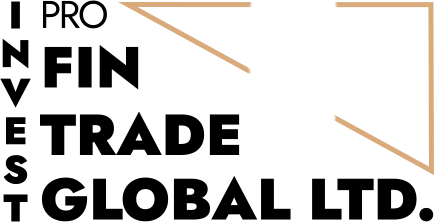Last updated: January 03, 2024
This AML/KYC Policy (“Policy”) is a document of Invest Pro Fintrade Capital Inc., a Delaware corporation, with the registered address at 100 Pearl Street, 14th floor, Hartford, CT 06103 (“we,” “us,”, “our” or ” INVEST PRO FINTRADE CAPITAL”).
1. General Client Acceptance Principles
The Company shall classify clients using different risk evaluation criteria based on the risk perception of each client. All documents and data required to be obtained pursuant to the Company’s Client Acceptance Principles (CAP) under this Policy must be collected before accepting a new Client. No client shall be accepted in anonymous or fictitious name(s). In order to identify and counter money laundering (ML) and terrorism financing (TF) risks the Company has developed an anti-money laundering guideline to facilitate compliance with AML/CFT good practices which include internal procedures that the Company and its employees must follow on how to identify, assess and respond to money laundering and terrorist financing risks.
2. What is Money Laundering & Terrorist Financing?
Money laundering is the process by which the illegal origin of wealth is disguised to avoid suspicion of law enforcement authorities and to wipe the trail of incriminating evidence. Terrorists and terrorist organizations though may not be keen to disguise the origin of their money but would be interested in concealing the destination and the purpose for which the money is collected. Therefore, terrorists and terrorist organizations could also employ techniques to hide and disguise money. Governments around the world recognize the corrosive dangers that unchecked money laundering poses to their economic and political systems and have prescribed acts, rules, and regulations for the prevention of money laundering.
3. What is a money laundering offense?
The offense of Money Laundering is defined as: Whosoever directly or indirectly attempts to indulge or knowingly assists or knowingly is a party or is actually involved in any process or activity connected with the proceeds of crime and projecting it as untainted property shall be guilty of the offense of money-laundering. “Proceeds of crime” means any property derived or obtained, directly or indirectly, by any person as a result of criminal activity relating to a scheduled offense or the value of any such property.
4. What is the International standard against AML & CTF activities?
The Financial Action Task Force (FATF) is an inter-governmental body that sets standards and develops and promotes policies to combat money laundering and terrorist financing. The Forty Recommendations and Nine Special Recommendations of FATF provide a complete set of counter-measures against money laundering covering the criminal justice system and law enforcement, the financial system and its regulation, and international cooperation. These Recommendations have been recognized, endorsed, or adopted by many international bodies as the international standards for combating money laundering. Website of FATF – www.fatf-gafi.org.
5. Clients Acceptance Criteria
No account shall be opened in an anonymous or fictitious/name(s).
No transaction or account-based relationship will be undertaken without following the Client Due Diligence (CDD) procedure.
The mandatory information to be sought for KYC purposes while opening an account and during the periodic updates as specified, should be obtained.
Optional/additional information is obtained with the explicit consent of the client after the account is opened.
Circumstances, in which a client is permitted to act on behalf of another person/entity, should be clearly spelled out in conformity with the established law as there could be occasions when an account is operated by a mandate holder or where an intermediary may open an account in a fiduciary capacity.
An individual client and official representative should have active legal capacity that was not restricted. A client being a legal person is to be registered with the relevant registry.
The Company shall enter into agreements with which it is unable to apply appropriate CDD measures, i.e., the Company is unable to verify the identity and/or obtain documents required as per the risk categorization due to non-cooperation of the client or non-reliability of the data/information furnished to the Company. Meanwhile, it may be necessary to have suitable built-in safeguards.
Clients that are likely to pose a higher than average risk to the company shall be categorized as a medium or high risk depending on the client’s background, nature and location of the activity, country of origin, sources of funds client profile etc. The Company shall apply enhanced due diligence measures based on the risk assessment, thereby requiring intensive ‘due diligence’ for higher-risk clients, especially those for whom the sources of funds are not clear. Examples of clients requiring enhanced due diligence shall include (a) high net worth individuals, (b) trusts, charities, NGOs, and organizations receiving donations, (c) companies having close family shareholding or beneficial ownership, (d) firms with ‘sleeping partners’, (e) Politically Exposed Persons, (f) non-face to face clients, and (g) those with dubious reputation as per public information available, etc.
6. The client identification procedure
When defining money laundering (ML) and terrorism financing (TF) risks the Company applies a risk-based approach during which the Company’s clients go through due diligence procedures, elaborated in accordance with standing US AML/KYC regulations. This Policy defines the process of assessing money laundering and terrorist financing risk, the information to be collected, and the way such information is processed and verified.
The Company’s clients (personal data processing objects) are legal entities that meet the requirements of this Policy. The Company identifies the client by obtaining a range of information about it and its representatives. The verification of the identity consists of verifying some of this information against documents or information obtained from a reliable source that is independent of the client.
The following information must be received for identification purposes from a client:
From clients-individuals and individuals being an official representative or UBO of the client: name and surname; date of birth; place of birth; citizenship; gender; personal identity number (if such exists); photograph on an official document which confirms his/her identity; proof of residential address; the number of the personal identification document; the expiry date of the identification document; profession; social status; e-mail address, a contact phone number, other information about the client he/she has to clue under the US legislation;
From legal entities: full name; date of establishment; registration number; tax number; list and full names of beneficiaries and/or current shareholders; Certificate of Incorporation or Certificate of Good Standing (document must be less than 6 months old); Memorandum and Articles of Association; Certificates listing the current directors; Certificates listing the current shareholders; Certificates listing the registered address (document must be less than 6 months old); Board resolution or Power of Attorney confirming appointment of Authorized person; recent company bank statement or audited financial statements; processing history statements for the last 6 months of processing showing business transactions and/or other information about the client it has to clue under the US legislation.
Additionally, the Company may request:
From individuals and legal entities: Collateral information and documents confirming ownership in mortgaged assets.
from legal entities: Complete Business Plan; Due-diligence report made by a reputable audit company or a bank describing legal, tax, and financial information; Financial statement for previous 3 years or other evidence of creditworthiness; Bank certificates on absence of debt; tax certificate; documentation proving the management structure; profile of key management team members. The Company may request from the beneficiaries of such legal entities the documents required from individuals as specified above.
Once a client is identified, the Company must conduct a certain level of due diligence based on a risk-based approach. For some business relationships, determined by the Company to present a low degree of risk of ML/TF, simplified due diligence (SDD) may be applied; in the case of higher risk situations, and specifically in relation to PEPs (paragraph 7 hereunder), enhanced due diligence (EDD) measures must be applied on a risk-sensitive basis. The Company would not be required to obtain evidence of identity of an applicant for business where it has reasonable grounds for believing that the applicant for business is (a) a regulated person, (b) a foreign regulated person, or (c) a legal practitioner or an accountant who belongs to a professional body whose rules of conduct or practice embody legal requirements for the detection and prevention of money laundering that are consistent with the requirements of the Caribbean Financial Action Task Force Recommendations or Financial Action Task Force Recommendations and the legal practitioner or accountant us supervised by his professional body for compliance with those requirements.
7. Politically exposed persons
In addition to the aforementioned measures, we are integrated with the largest database of Politically Exposed Persons (the “PEPs”), as well as those of their family members. Whenever a client’s stockholder, UBO, or official representative has been identified as a PEP, enhanced due diligence measures are applied, and senior management approval is necessary for establishing or continuing a business relationship with such a client.
8. Compliance Officer
The Secretary of the Company doubles as a compliance officer. The key role of the compliance officer is to create a framework where any member of our staff has sufficient skills and knowledge to raise suspicions of ML or TF.
9. Trainings
We make sure that our employees and officers are aware of our AML program and request that training is provided to all employees and officers (new and existing) before conducting business activities, and, at a minimum, must include:
Understanding and recognizing money laundering and fraud;
Verifying client identification;
Identifying suspicious activity and structured transactions;
Reporting requirements related to all

